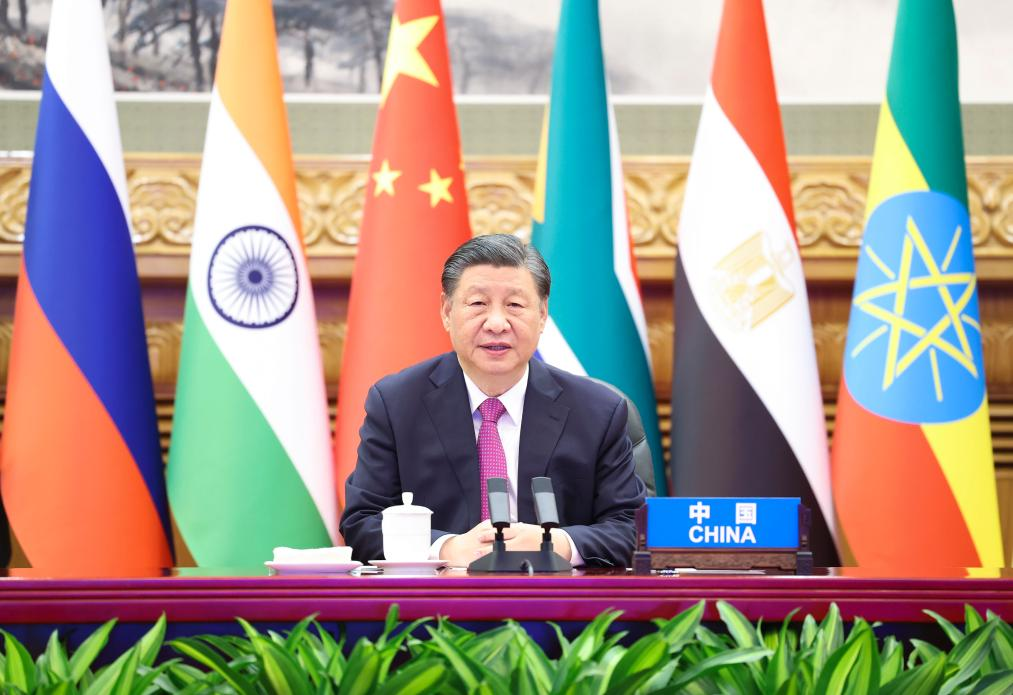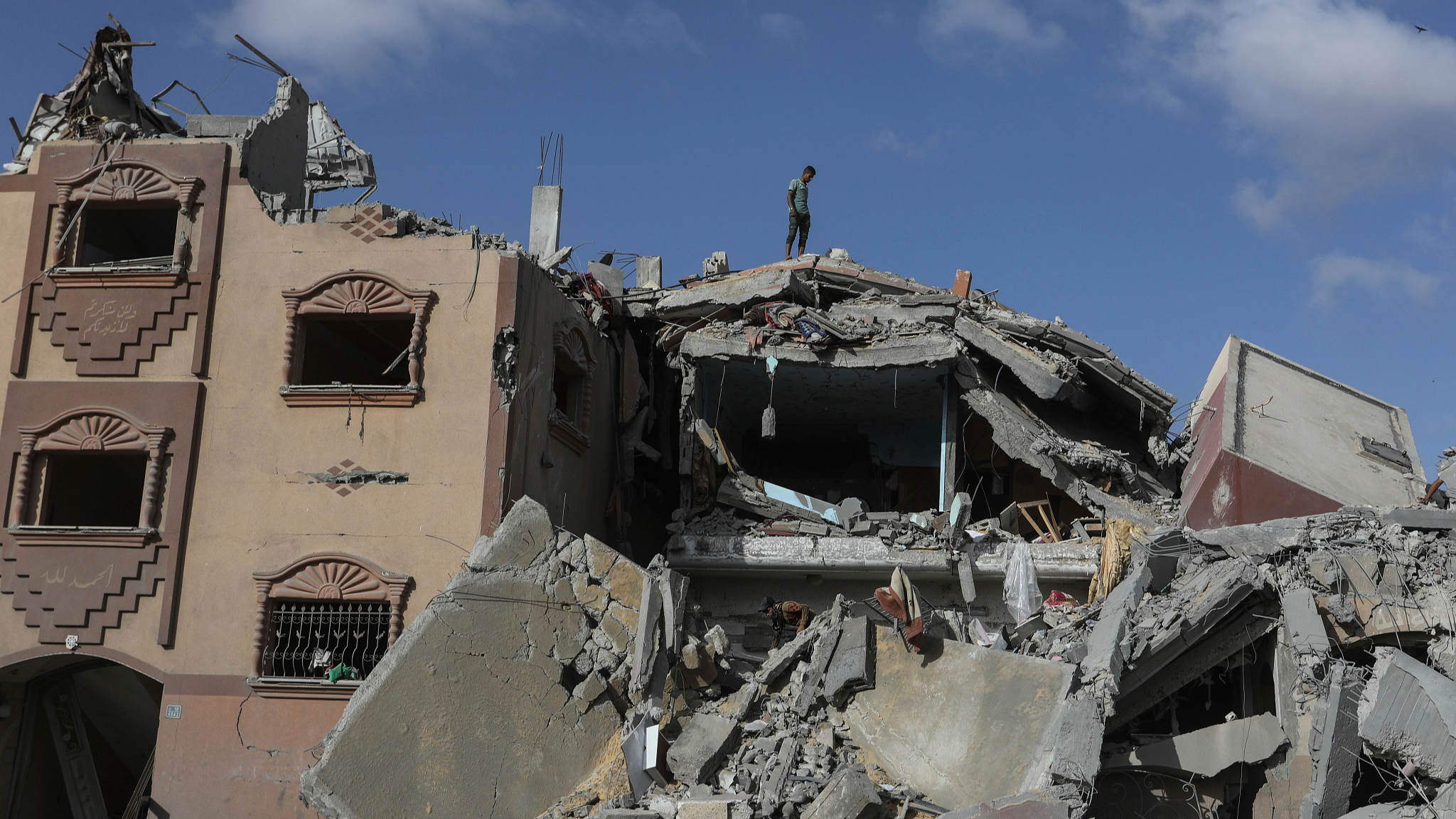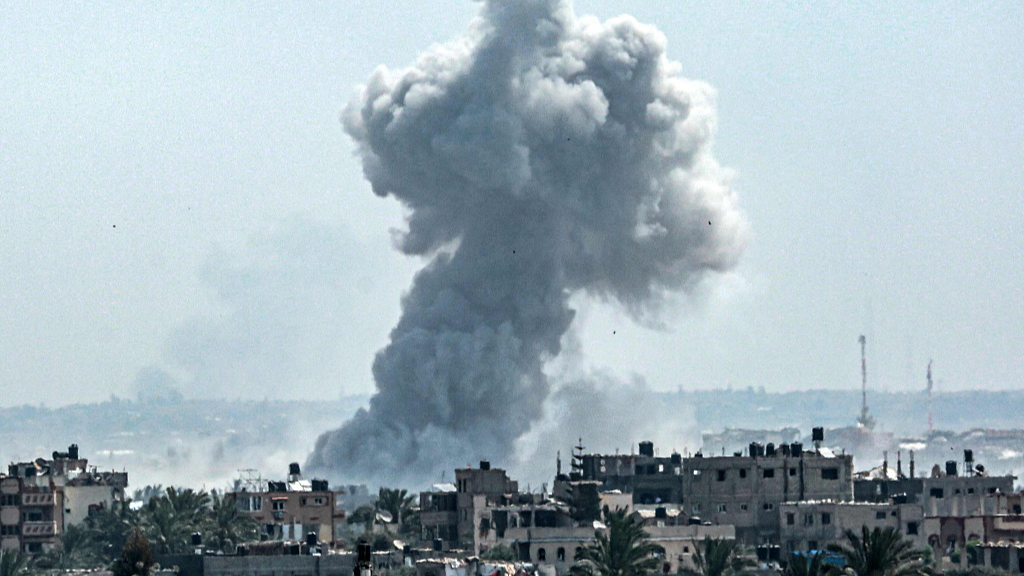EIJING, Nov. 21 (Xinhua) — Chinese President Xi Jinping on Tuesday attended the BRICS extraordinary virtual summit on the Palestinian-Israeli issue, saying that the parties to the conflict must end hostilities and achieve a ceasefire immediately.
Xi called on the parties to stop all violence and attacks against civilians, release civilians held captive, and act to prevent loss of more lives and spare people from more miseries.
Xi said humanitarian corridors must be kept secure and unimpeded, and more humanitarian assistance should be provided to the population in Gaza.
He said the international community must act with practical measures to prevent the conflict from spilling over and endangering stability in the Middle East as a whole.
He emphasized that the only viable way to break the cycle of Palestinian-Israeli conflict lies in the two-state solution, in the restoration of the legitimate national rights of Palestine, and in the establishment of an independent State of Palestine.
China calls for early convening of an international peace conference that is more authoritative to build international consensus for peace and work toward an early solution to the question of Palestine that is comprehensive, just and sustainable, Xi said.
Xi said this is the first summit since the expansion of BRICS. Given the current circumstances, it is very timely and very important that we meet and speak up for justice and for peace on the Palestinian-Israeli issue.
“The conflict in Gaza is raging on into its second month. China is gravely concerned that the conflict is causing enormous civilian casualties and a humanitarian disaster, and tends to expand and spill over,” he said.
The collective punishment of people in Gaza in the form of forced transfer or water, electricity and fuel deprivation must stop, he said.
All the parties must act to deliver on UN General Assembly and Security Council resolutions through concrete measures on the ground, Xi said.
Xi said the root cause of the Palestinian-Israeli situation is the fact that the right of the Palestinian people to statehood, their right to existence, and their right of return have long been ignored. He said there can be no sustainable peace and security in the Middle East without a just solution to the question of Palestine.
Xi said since the outbreak of the latest Palestinian-Israeli conflict, China has been working actively to promote peace talks and a ceasefire. China has provided humanitarian assistance to help ease the humanitarian plight in Gaza and will provide more supplies and assistance according to the needs of the people in Gaza.
At the UN Security Council, China has acted in its capacity as president to facilitate the adoption of the resolution, which calls for extended humanitarian pauses and corridors, the protection of civilians, and the provision of humanitarian assistance, he said.
Hailing the BRICS cooperation mechanism as an important platform for emerging markets and developing countries to strengthen solidarity and cooperation and safeguard common interests, Xi said the meeting to coordinate positions and actions on the Palestinian-Israeli conflict marks a good start for greater BRICS cooperation following its enlargement.
China stands ready to work with other members to usher in a new era for BRICS cooperation, Xi said.
South African President Cyril Ramaphosa chaired the summit, which gathered leaders from China, Brazil, Russia, Saudi Arabia, Egypt, Iran, the United Arab Emirates, Ethiopia and foreign ministers from India and Argentina.
The leaders expressed grave concern over the Palestinian-Israeli situation and condemned all acts of violence against civilians. They stressed the need for the protection of civilians in accordance with international humanitarian law, calling for an immediate durable, sustainable humanitarian truce and humanitarian aid delivery.
They emphasized the importance of settling disputes through dialogue, and voiced support for all efforts conducive to a peaceful resolution of the crisis. The leaders called on the international community to support a just solution to the Palestinian question, and promote the realization of the two-state solution and establishment of an independent State of Palestine that enjoys full sovereignty.
Wang Lei, director of the Center for BRICS Cooperation Studies at Beijing Normal University, said the summit reflects the sense of responsibility of the BRICS countries, their call for international peace and stability, and their consensus on many major issues.
China’s position is consistent, fair, just and without selfish interests and China genuinely works for regional peace and development, said Xu Feibiao, director of the Center for BRICS and G20 Studies with China Institutes of Contemporary International Relations.
Source(s): Xinhua

 News6 days ago
News6 days ago
 Sports6 days ago
Sports6 days ago
 News6 days ago
News6 days ago
 World6 days ago
World6 days ago
 Sports6 days ago
Sports6 days ago
 News6 days ago
News6 days ago
 News5 days ago
News5 days ago
 News6 days ago
News6 days ago


















